American English vs British English: how to learn American accent
Language is not just about words. It’s about nuances and melody that create rich communication. English language learners know that very well as they encounter different English accents around the world. There are several English accents and a variety of dialects. The most known English accents are: British English accent, American English, Australian accent, and some others. American accent stands out as one that learners aspire to master.
Let’s take a look at the distinction between American and British accents and pronunciation. Comedians often joke about the fact that either Americans or British don’t understand English.
American Accent vs British
If you want to learn the American accent, it’s important to see the difference between British and American accents. Each possesses its unique sound, intonation, and pronunciation.
Here are a few key differences:
American English vs British English: vowel pronunciation
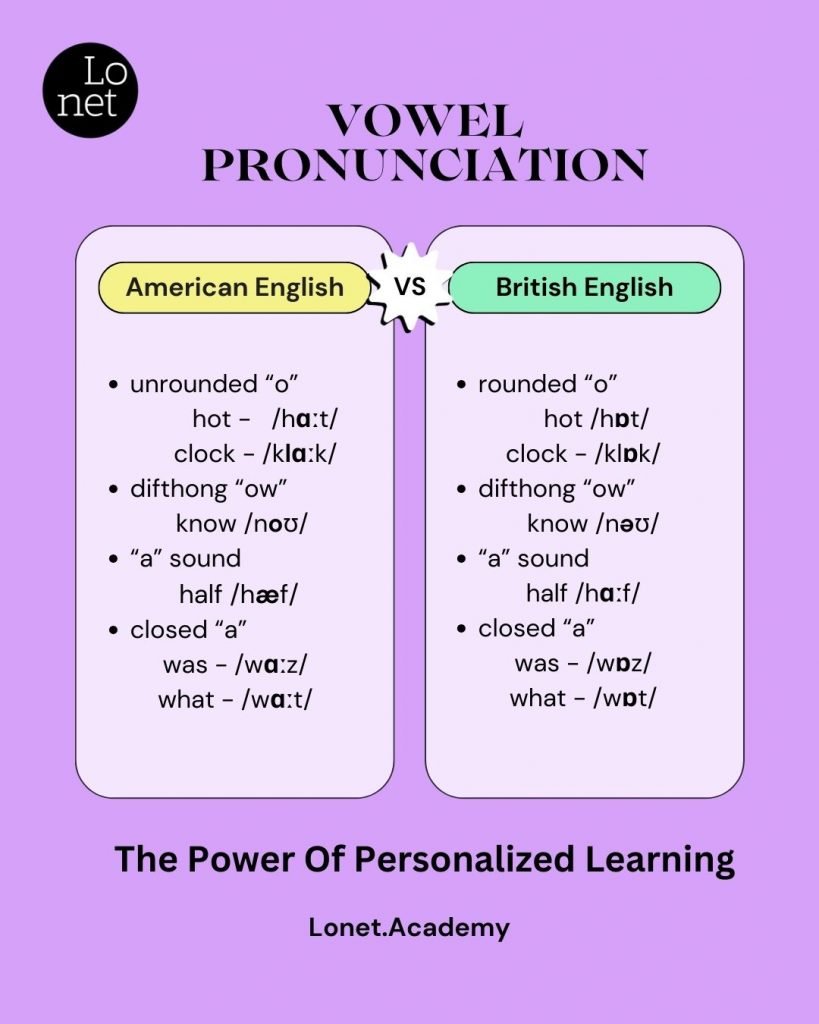
British Accent: one of the most noticeable elements of the British accent is the pronunciation of certain vowels. They pronounce sounds of “o”, “a” or “ow” in distinct ways and it makes quite a noticable difference in how their English sounds.
In some words vowel “i” is pronounced differently. For example “simultaneously“:
in British pronunciation it’s /ˌs ɪ m.əlˈteɪ.ni.əs.li/
in American English it is /ˌs aɪ. məlˈteɪ.ni.əs.li/
For checking the differences we suggest using Cambridge Dictionary Online version, where you can see both versions of pronunciation as well as listen to it.
American English vs British English: pronunciation of “tt”
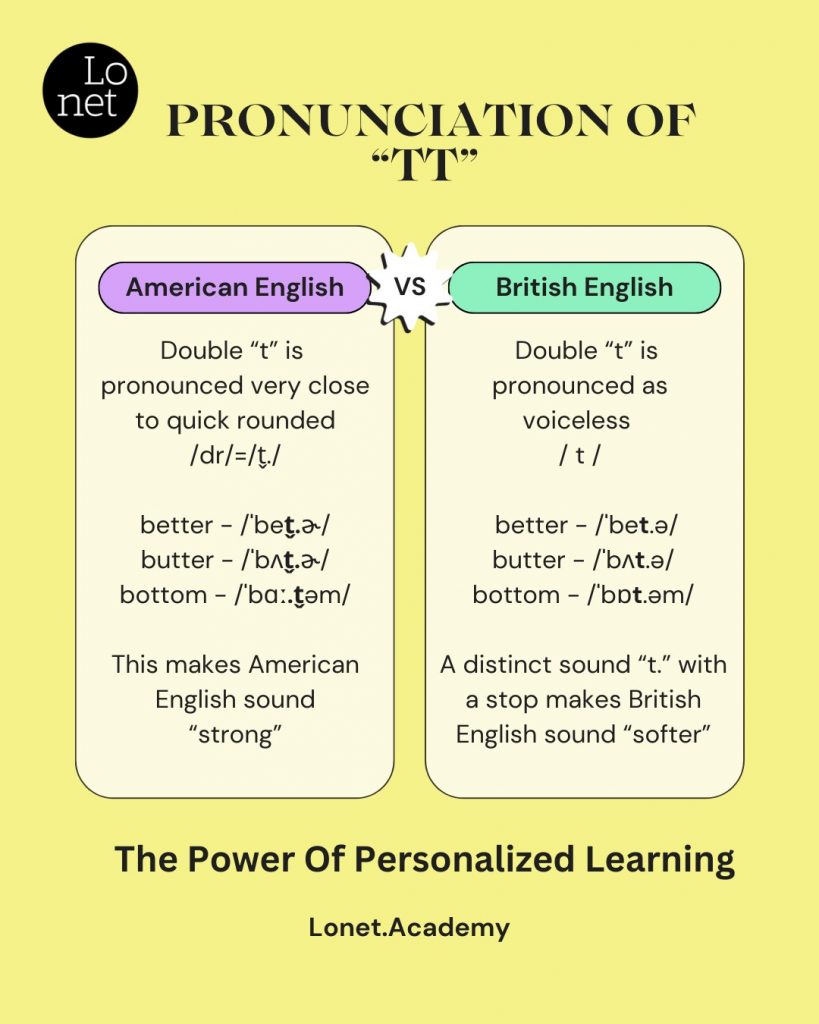
British Accent: In some cases, the British accent may articulate consonants more softly, especially at the end of words. For example, the word “better” might sound closer to “bet-uh.”
American Accent: Consonants in the American accent can be more pronounced, especially at the end of words. For instance, the word “better” will sound closer to “bed-er.”
Intonation and rhythm
British Accent: The British accent often features a more melodious intonation and rhythm, with more pronounced pauses between phrases.
American Accent: In contrast, the American accent may sound more straightforward with a smoother rhythm and less pronounced pauses.
American pronunciation of “R” vs British pronunciation
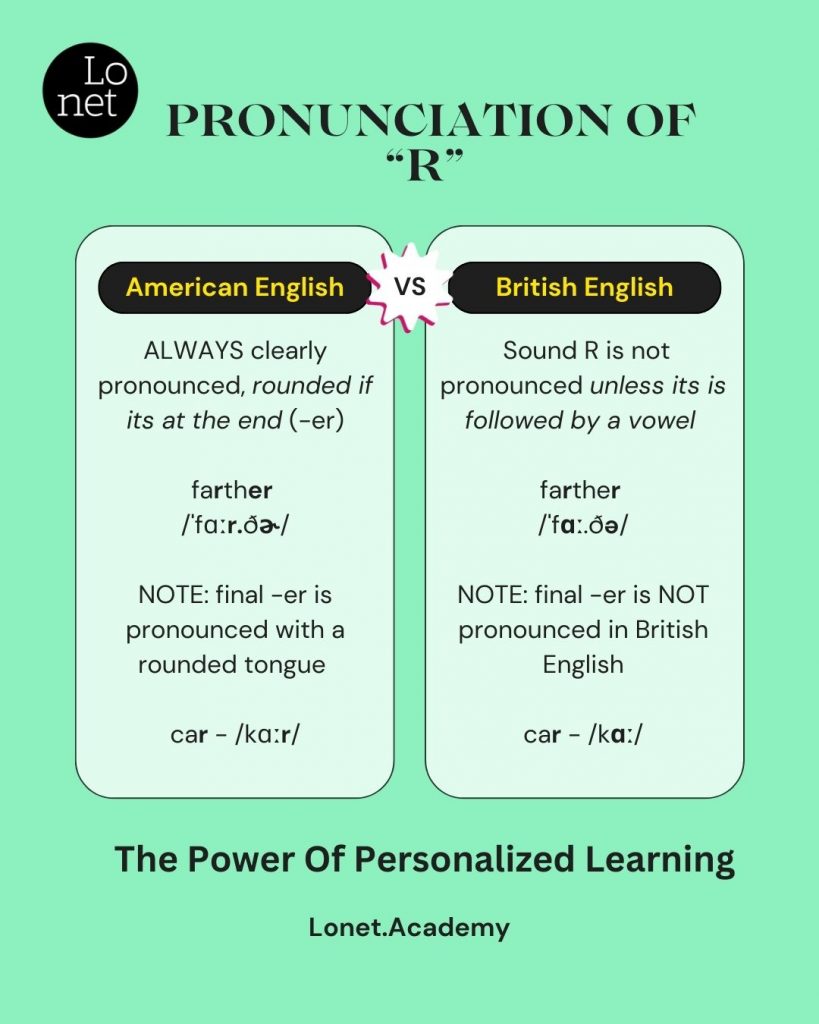
British English: in the British accent, “R” is often not pronounced at the end of a word or before a consonant, creating a longer vowel sound. If a vower ir followed by -r in British English it is pronounced a long vowel. For example, a word “car” would sound like “kaaaaa”, while a word “more” would sound like “mooooo”.
American English: in the American accent, “R” is usually pronounced in most cases, giving the speech a clearer and more vibrant sound. Thus a “car” will sound like “carr” and “more” will sound like “moorr”. Make sure you make “r” sound rounded (you want to roll your tongue to pronounce “r”).
Mastery of the American accent: a practical guide
Audiobooks and podcasts:
Select audiobooks or podcasts in English with an American accent. Listen to them regularly, striving to grasp intonations and pronunciation nuances. These are some of the best American accent training resources:
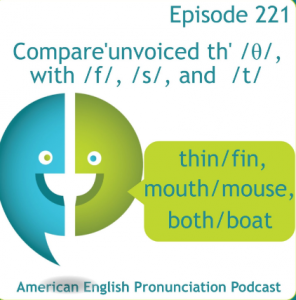

Movies and TV series:
If you wonder how to practice your American accent, the films and popular TV series below are excellent resources. Watch them with subtitles to connect the spoken language with the written text.



Imitate and repeat:
Mimicry: Imitate pronunciation and intonations. Replicate phrases after native speakers, trying to reproduce their sound as accurately as possible.
Try recording yourself on a recorder and listen to the difference between your pronunciation and that of a native speaker.
Accentuated Phrases: Identify phrases that appear challenging in pronunciation. Practice repeating them, emphasizing the difficult sounds.
Now, let’s delve into the topic of phonetics. Some may overlook it, considering it necessary only for professional linguists. However, understanding the difference in sounds is as important as the alphabet.
Complex Sounds and Diphthongs:
TH Sounds: Master the correct pronunciation of “th” sounds in words like “think” and “this.”
Diphthongs: Learn diphthongs (a combination of two vowel sounds in one syllable) in words like “time” or “boy.”
Of course, this is just the tip of the iceberg. For a more in-depth exploration of phonetics, you can delve into channels:


Interactive Practice: Online Resources and Conversations With Native Speakers
Use apps like Tandem or Speaky to engage in conversations with native speakers. It’s an excellent way to practice in real-life dialogues.
For a more effective refinement of your pronunciation and to receive feedback on your progress, schedule a session with a qualified tutor from Lonet Academy. Practice conversing in American English with a tutor, focusing on correct pronunciation and accent.
Distinguish between Accents and Dialects
There are many more aspects of how American English is different from British English. They include not only accent (pronunciation), but also different vocabulary, spelling and grammar. If you want to sound like a native American speaker you will have to master all of them.
Accent vs. Dialect:
What is an accent?
Your accent is how you pronounce words. It’s mostly about the sounds, intonation, and phonetics. For example, people in New York sound different from those in Texas (pronouncing the same words). Those are different ACCENTs!
What is a dialect?
A dialect is about using different words and grammar rules in the same language. It’s a special way of speaking a language in a certain place or by a certain group of people.
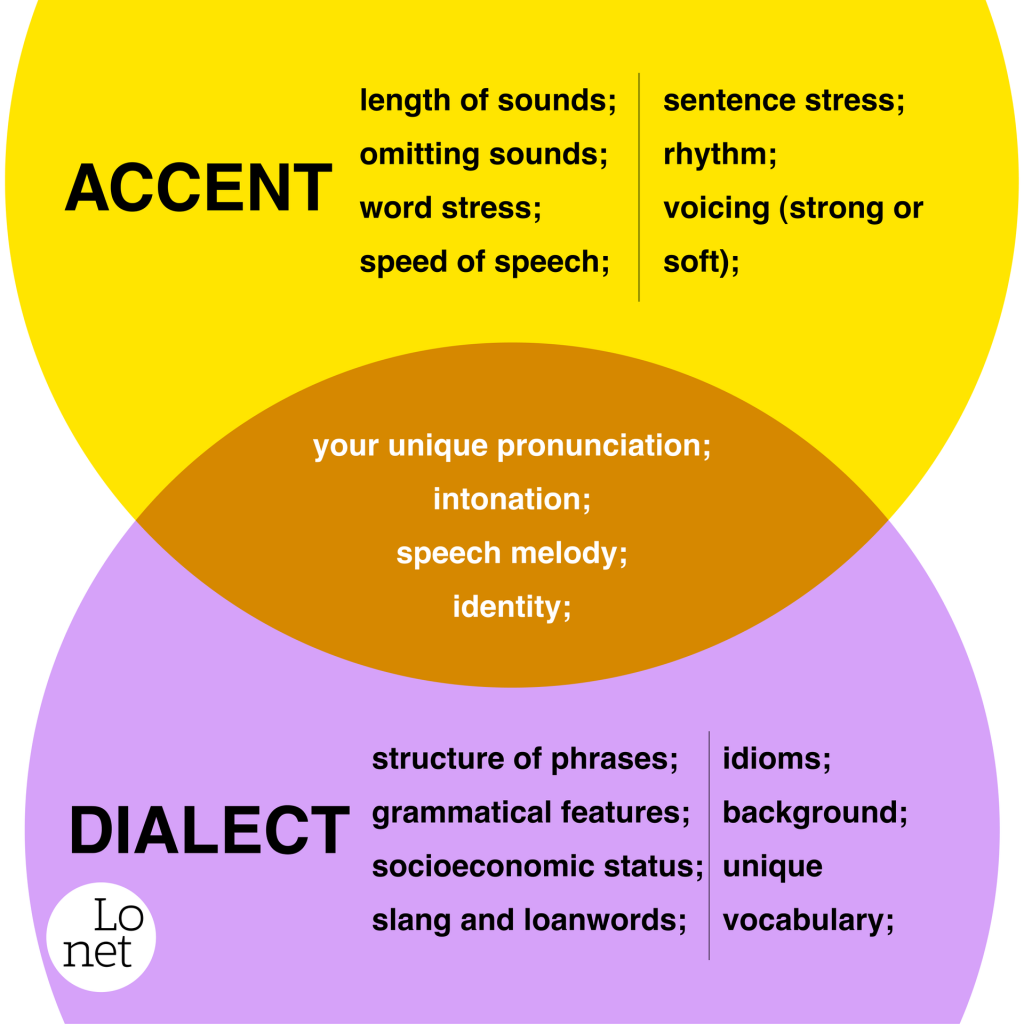
Check our articles on other topics that might be of your interest:
How to learn a language with AI, using ChatGPT for your independent studies.
Explore some coaching techniques of the GROW model, that will help you boost your motivation and inspiration for language learning.
Future of multi-lingualism at work: your career opportunities as a foreign language learner.
If you are taking the IELTS exam, read our article about how to get prepared for the IELTS and what is the difference between general IELTS and academic.
